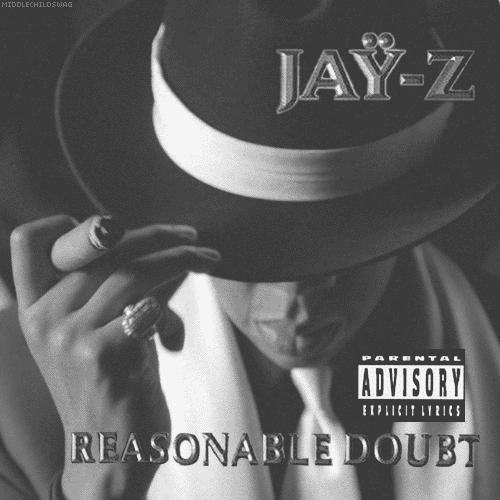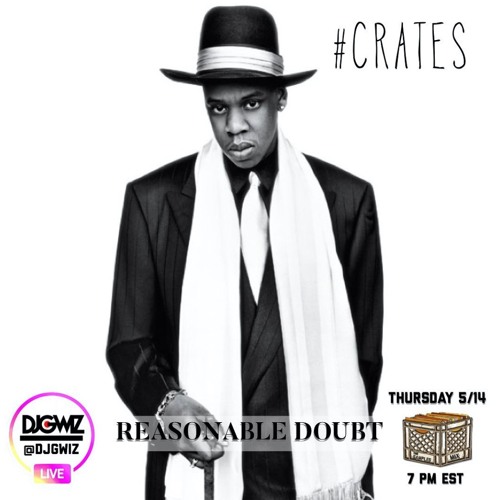

Each beat-smith would go on to become consistently involved in future Roc-A-Fella projects. Rather than return to Timbaland or Swizz Beatz for production, Jay selected beats from a new crop of producers: Kanye West, Bink, The Neptunes and Just Blaze. Originally intended to be a collaboration project, it nonetheless featured heavy appearances by Beanie Sigel, Amil, and Memphis Bleek, along with a Philly rapper Freeway guest spot that led to him being signed to Roc-A-Fella. Jay-Z put out The Dynasty: Roc La Familia as a solo album. Carter continued Jay's new affiliations with then-popular producers in 2000, the label saw a redefinition in both sound and roster. Though Da Ranjahz put in appearances on Memphis Bleek's 1st album, Coming of Age, in 1999, they soon parted ways with Roc-A-Fella.
#Jay z reasonable doubt illegal download series
DJ Clue released the 1st of his collaboration-album-style series in The Professional, which saw the first Roc-A-Fella appearance of Cam'ron meanwhile, DJ Ski had, at the time, formed the production company Roc-A-Blok, although the company folded when Ski moved out of New York to take a break from music. 2 spawned his first major hit, "Hard Knock Life", and became the label's first Platinum-RIAA certified release it was the last Roc-A-Fella release to see appearances by Jaz-O or Sauce Money, and the first to feature new Roc artists Beanie Sigel and Amil. Hard Knock Life, saw him largely depart from his previous entourage and venture forth with producers Swizz Beatz, Timbaland, The 45 King and Jermaine Dupri. (namesake of Irv's record label, Murder Inc.).
#Jay z reasonable doubt illegal download movie
1, "Rap Game/Crack Game." In 1998, Roc-A-Fella Records released the movie Streets Is Watching and the accompanying soundtrack the film compiles various Jay-Z videos into a continuous story, and the album introduced more affiliated, future Roc-A-Fella Records signees Noreaga, M.O.P., and DJ Clue, as well as producer Irv Gotti and the short-lived group, Murder Inc. While Memphis Bleek signed with the Roc, Sauce Money chose to pursue a deal with Priority, and Jaz refrained from signing anywhere and provided production for only one song on Vol. 1, but the label and its figurehead artist saw increasing popularity, mainly due to a high-profile appearance by Jay on B.I.G.'s posthumous Life After Death, complete with Roc-A-Fella and Damon Dash references. As such, the only release in 1997 was Jay-Z's second album, In My Lifetime, Vol. In 1997, Roc-A-Fella agreed to a 50/50 partnership and distribution deal with Def Jam. The snub, and a sample clearance issue with the Nas-sampling Reasonable Doubt song "Dead Presidents II," were elements that contributed to tension between Jay-Z and Nas. We would be waiting and we would be getting offended. We was meeting and they was saying, 'Yeah,' but they wasn't showing up. That's when we wanted to put out the Firm. Nas and AZ was supposed to be on 'Bring it On,' they kept not showing up. According to Dame, the label had intended on releasing Nas' group The Firm, but the deal fell through: Starting out as Roc-A-Fella's only artist, Jay-Z was supported by The Notorious B.I.G.'s producer DJ Clark Kent and DJ Ski, who was then working with Camp Lo affiliated rappers, Sauce Money, Jaz-O, and a young Memphis Bleek, though only Bleek would eventually sign with the label. Though Reasonable Doubt didn't immediately attain commercial success, it spawned several hits, and procured Jay-Z a reputation in the hip-hop community. After being turned down by several major labels, Carter, Dash and Burke started their own label through Priority, using money from the music videos provided by Payday due to their singles only deal. Rockefeller ) occurred in 1995, beginning as an independent outlet for rapper Jay-Z's 1st album. The foundation of the label (which is a pun on the name of American business magnate John D. History 1995–2000: Formation and early years




 0 kommentar(er)
0 kommentar(er)
